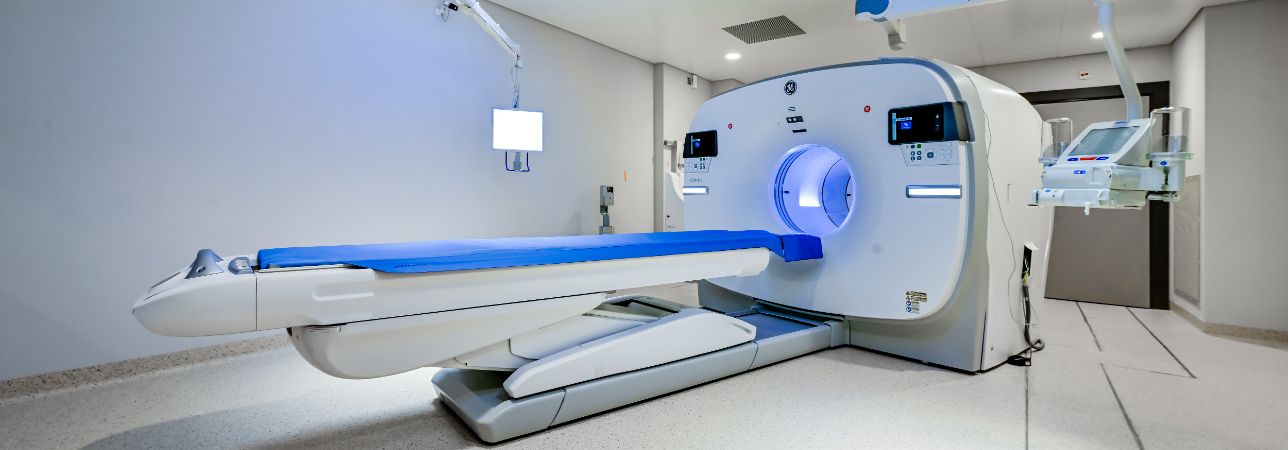Open from Monday to Friday from 08:00 to 17:00
Address
Clinique Générale-Beaulieu
Chemin Beau-Soleil 20
1206 Geneva

Nuclear medicine is a medical speciality that uses radioactive substances administered mainly by injection.
It allows imaging diagnoses based on the molecular characteristics of diseases (oncological, inflammatory, infectious and vascular) and on the functioning of organs.
Nuclear medicine also makes it possible to treat a number of oncological diseases with internal vectorised radiotherapy.
Open from Monday to Friday from 08:00 to 17:00
Clinique Générale-Beaulieu
Chemin Beau-Soleil 20
1206 Geneva
Scintigraphy or SPECT are imaging devices that use the detection of gamma rays emitted by the drug administered to the patient to produce functional images. In order to improve anatomical analysis, scintigraphy and SPECT are regularly combined with CT. The main organs explored are bone, thyroid, lung, kidney and brain. The search for cardiac ischaemia is also a scintigraphic indication. An exercise test is therefore coupled with the examination
PET/CT is an imaging device that combines positron emission tomography and a CT scanner to study the metabolic activity of tissues or the presence of certain cells (molecular receptors) in the body and to provide anatomical information in parallel.
In oncology, PET/CT is the most widely used technique for tumour diagnosis, pre-treatment assessment of extension, evaluation of response to treatment, tumour targeting for external irradiation or the search for recurrence and metastases. In addition to oncology, this technique is used for cardiological and neurological examinations and to search for inflammatory or infectious sites.
In cardiology, the search for ischaemia and myocardial viability can be assessed by PET/CT, both qualitatively and quantitatively. In neurology, we look for neurodegenerative diseases (such as Alzheimer's disease.
Nuclear medicine has an increasingly important role in the field of therapy. This method is based on the collegial expertise of the Nuclear Medicine and Oncology team.
Indeed, treatments by internal vectorised radiotherapy make it possible to propose a targeted treatment using a ligand to which a radio marker is attached, detectable by scintigraphy or PET/CT and capable of treating the tumour. Thus, neuroendocrine tumours, metastatic prostate cancer and inoperable liver metastases or primary liver tumours are recognised indications for internal vector therapy.
Nuclear imaging does not present any particular risk; the examinations and treatments carried out are perfectly controlled. In diagnostic studies, the drugs and tracers used in nuclear medicine have a limited life span. The decay of radioactivity in waste is monitored before each discharge from the institution.